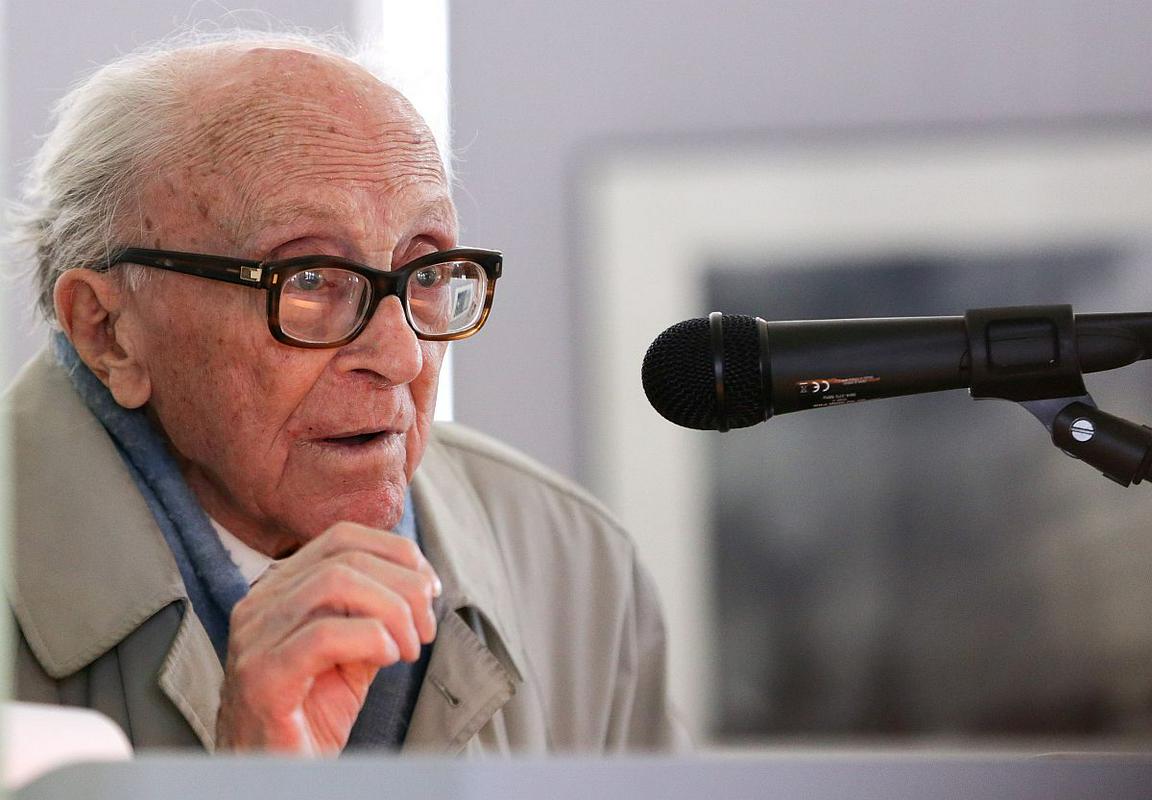
At the age of 100, Boris Pahor is one of Europe’s oldest writers and intellectuals – and certainly among one of the most admired Slovenians. The life of this centenarian concentration camp survivor has been shaped by his principled opposition to 20th century totalitarianisms that swept his hometown and changed his life forever.
Pahor was born in 1913 to Slovenian parents in the Austro-Hungarian port city of Trieste. At the time of his birth, Trieste was cosmopolitan and thoroughly multiethnic -- a true reflection of the diverse nature of the Hapsburg Empire. However, Austria-Hungary was already experiencing a steep decline and World War I shattered the status quo when Pahor was just a year old.
After the Great War, Trieste was awarded to Italy, and Italian nationalism was on the rise. Pahor’s father lost his civil service job because of his Slovenian ethnicity. In 1920, the six-year-old Pahor witnessed the burning of the Slovenian National Hall in Triste at the hand of Italian Black Shirts – an event he would later recount in his books. Two years later, Mussolini’s Fascists took over the government, and the situation for the Slovenian community grew even worse.
Pahor attended Catholic school and later studied theology. An event that took place in 1936, however, made Pahor determined to fight the Fascist regime: That’s when a Slovenian choirmaster was tortured and killed by the Fascists simply because he wouldn’t stop performing Slovenian-language choral songs.
As World War II approached, Pahor actively established links with political and literary figures opposed to Fascist rule. After the Germans took over Trieste in 1943, Pahor joined the anti-Facsist Partisan movement. He was arrested by local collaborators and transported to the Dachau concentration camp. In the months ahead, he would be transported from camp to camp, until he ended up at the notorious Bergen-Belsen in northern Germany. Unlike tens of thousands of his fellow inmates, he survived the horrors of the camp and was liberated by the Allies in 1945. His experience later formed the basis of his most well-known novel, Necropolis.
The end of World War II did not mean the end of Pahor’s political commitment. In Communism, he saw another totalitarian movement dangerous to the Slovenian nation, and he established warm bonds with Edvard Kocbek, a dissident Slovenian poet. Pahor also published a Triste-based magazine that gave voice to Slovenia’s anti-Communist opposition. The regime in Yugoslavia took notice of Pahor’s stances, and for several years, he was banned from even entering Slovenia.
All the while, Pahor continued to write books, many of them focusing on his youth, his concentration camp experiences, and his postwar embrace of left-leaning, but firmly anti-Communist politics. Some of his most well-known works – such as A City in the Bay (referring to Trieste) -- dealt with the difficulties faced by the Slovenian community in Italy.
After the fall of Communism, Pahor became a celebrated literary figure in Slovenia. He received a number of awards, and his literary works frequently topped bestseller lists. With the end of the Cold War, he also received recognition in Italy, where the public rediscovered a writer who was once marginalized because he chose to write in Slovenian rather than Italian.
In recent years, Pahor’s books have been translated into foreign languages, and in 2007, he received the prestigious French Order of the Legion of Honor. Meanwhile, he has repeatedly made use of his prominence in Slovenia to point out various failures and disappointments of the country’s present governments. Many people have come to recognize that Pahor, having experienced the turmoil and the horrors of the 20th century, can provide valuable insight into the challenges facing Europe and the Slovenian people in the 21st century.

































































